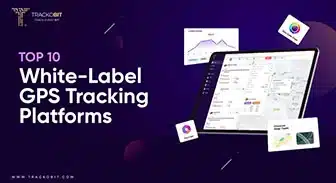-
TrackoBit
Manage commercial vehicles with the new-age Fleet Management Software
TrackoBit -
TrackoField
Streamline your scattered workforce with Field Force Management Software
TrackoField -
Features Resources
-
Blog
Carefully curated articles to update you on industrial trends. -
White Paper
Insightful papers and analysis on essential subject matters. -
Glossary
Explore an alphabetical list of relevant industry terms. -
What’s New
Get TrackoBit & TrackoField monthly updates here. -
Case Study
Explore the cases we solved with our diverse solutions. -
Comparisons
Compare platforms, features, and pricing to find your best fit.
-
About Us
Get to know TrackoBit: our team, ethos, values, and vision. -
Careers
Join the most dynamic cult of coders, creatives and changemakers. -
Tech Support
Learn about our technical support team and services in detail. -
Events
Check out the exhibitions where we left our marks and conquered. -
Contact Us
Connect with us and let us know how we can be of service.
12 Benefits of Effective Workforce Management Software
- Author:Tithi Agarwal
- Read Time:9 min
- Published:
- Last Update: February 4, 2025
Table of Contents
Toggle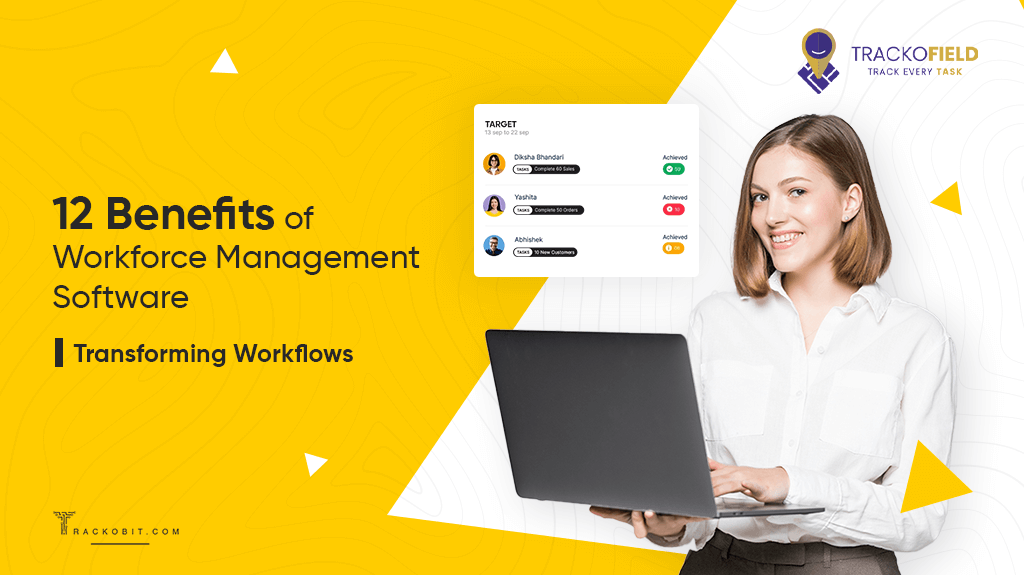
Workforce management software is revolutionising how businesses manage their employees’ productivity. The software streamlines workflow and maximises employee efficiency.
Table of Contents
Toggle
As a manager, are you struggling to manually manage your workforce’s attendance and policy compliance? Are you spending hours compiling reports and reviewing data to ensure it’s error-free? Do you spend hours each week reconciling payroll? Why not consider using effective workforce management software?
The software offers a range of benefits. It can help you streamline and automate shift scheduling, attendance, employee task tracking, and reimbursement processes, saving you time, money, and resources.
We’ll explore the top 12 benefits of using efficient workforce management software. And learn how it can help transform how you manage your workforce.
Are you ready to learn more? Keep reading to be amazed by the benefits of this technology.
What Is Workforce Management Software?
Workforce management software is a platform designed to streamline and enhance the management of employees, whether in the office or on the field. This software helps businesses optimise their workforce by efficiently scheduling shifts, tracking employee hours and locations, managing leave, speeding up the reimbursement process, and automating payroll calculations.
The workforce management system aims to improve operational efficiency, reduce administrative burdens, and ensure compliance while maximising productivity and employee satisfaction.
Read Blog – What is Workforce Management Software?
Key Features of Workforce Management Software
TrackoField, a workforce management software, offers solutions and features proven to increase operational outputs and employees’ productivity tenfold.
Real-time Workforce Tracking: Actively track your workforce without having to call them every minute. The software provides accurate, timely updates in real time.
Attendance Management: Automating the attendance marking process saves employees time and effort. The system allows them to mark their presence through the geocoded attendance feature on the mobile app once they reach their location. The attendance data recorded is authentic and devoid of manipulation. Also, the visual verification feature in the app itself ensures no buddy punching is happening.
Task Allocation and Management: The system automatically assigns tasks to the best-suited employees, considering their bandwidth and proximity. Managers get an eagle-eye view by tracking each employee’s real-time task status.
They can ascertain which task is pending, in progress, or complete. Plus, they get a location and time check feature describing when certain tasks were completed, for how long, and in which particular location. Also, they can simply drag and drop for shift scheduling.
Expense Management: Field employees no longer need to carry bills, as the system allows them to snap a picture and upload it on the portal for reimbursement claims. The request is visible to managers in the hierarchy, who can approve or override it remotely. Additionally, they can limit the spending and reimbursement amount according to team, designation, and position.
Order Management: The order management solution allows managers to gain instant visibility of the orders placed by sales representatives on the field. It also allows the workforce to easily place orders through the portal and apply custom discounts instantly.
Analytical Reports: Get customisable and auto-generated reports that contain real-time insights into employee productivity, attendance and leave trends, and more operational insights. Reports like targets vs. achievement are very helpful in determining employee efficiency and productivity.
Executive App: TrackoField has an executive app that helps field employees navigate their tasks, follow instructions through voice-note-supported chats, mark attendance, and apply for leaves and time off remotely.
12 Benefits of Workforce Management Software
Here are not 5, not 10, but 12 reasons why every business, irrespective of industry, must adopt an effective workforce management system.
1. Improved attendance tracking and scheduling
Workforce management software significantly benefits attendance tracking and scheduling processes by automating tasks assigning and providing real-time employee monitoring. Automation reduces errors in recording employee attendance, ensuring accurate timekeeping. Managers can access accurate attendance data and easily detect time theft, tardiness, and absenteeism.
It optimises schedules by assigning tasks to employees after considering factors such as employee availability and skill sets. It also minimises labour costs while maintaining adequate staffing levels. Additionally, it empowers employees by offering them knowledge of their schedules or tasks in advance, making planning their leaves easy.
2. Enhanced payroll and time-tracking capabilities
Workforce management software helps streamline payroll calculation by accurately tracking billable or total hours worked, attendance and leave data, overtime, and other factors. It efficiently tracks employee work hours, breaks, and attendance, ensuring accurate payroll computation. The software integrates with time clock systems, allowing seamless capture of clock-in and clock-out times.
Advanced functionalities such as real-time tracking, task start and end time and biometric or geo-sensitive attendance enhance accuracy and security. Overall, workforce management software simplifies payroll processing, reduces errors, saves time, and increases operational efficiency for businesses of all sizes.
3. Increased productivity and efficiency
Workforce management systems help businesses increase productivity and efficiency on several levels. For example, as they help automate task management allocation, managers can form schedules a month in advance due to the visibility they get of the operations. Because of geocoded attendance, employees no longer need to visit the office to mark their presence. Instead, they can visit an extra client site and achieve targets, serving clients with more dedication and effort. This automatically translates into enhanced efficiency.
Also, when employees know they are being monitored, they tend to be more focused, and the chances of idling decrease.
4. Improved customer service
The software enhances customer experience by reducing wait times, speeding up response times, and ensuring the right resources are available to meet client demands. Also, satisfied customers are more likely to come back, proving that using workforce management software to enhance customer service is a great idea.
Integrating the solutions into your business ensures that your customers receive quality service with the proper attention and focus they deserve. This will improve performance and productivity, lower staff turnover, increase safety measures, and simplify the job assignment process.
You’ll be better positioned to answer clients’ questions, inform them of developments, and finish projects or deliverables on schedule, if not sooner. As a result, your company will be able to operate more quickly and intelligently, and your clients will appreciate it as well.
5. Reduced administrative costs
Businesses can cut their administrative expenses through workforce management solutions. The system’s features can save time and money by streamlining procedures and automating numerous tasks.
Workforce management software can greatly benefit companies of all sizes. In the long term, it saves time and money by improving tracking, scheduling, payroll management, customer service, and other business operations. Its ability to lower administrative costs, raise customer satisfaction, and increase staff productivity can increase profitability.
6. Boost employee satisfaction
Businesses that have satisfied staff members stand a good chance of succeeding. Workforce management software gives your employees more flexibility and control, allowing them to manage their daily responsibilities easily. With the correct tools, they can confirm shifts, view and edit schedules, request leaves of absence, clock in and out, reply to specific tasks, and much more. Since the system is cloud-based, they have ready access to all the required information and documents, thus amplifying the remoteness of their job.
Also, the system enhances the visibility of the employees’ work, letting managers identify high-performing and underperforming employees. This ensures unbiased appreciation and recognition of hard work, which is a great incentive and contributes to employee satisfaction and retention.

7. Improved data analysis
Data is essential to gaining a competitive advantage regardless of your industry type. Reviewing past and current data about employees’ attendance, leave, tasks, and expense patterns in real-time can help you make informed decisions that positively impact your business. With TrackoField, you get access to a 12-month history of every road taken by each employee which helps in accurate reimbursement as per travelled mile. Moreover, the software provides access to data on when and where the assigned task was completed and how many hours it took.
From employees’ spending trends and total client sites visited to employee performance regarding task count, such hard data allows you to analyse every aspect of your business under a microscope. You can dice up the real time reports to compare and contrast the data to reach logical conclusions and ‘see the big picture’ of your business overall.
8. Improved mobile workforce management
With the rise in demand for field employees and a remote workforce worldwide, businesses need custom solutions to stay in touch with offsite employees. Cloud-based workforce solutions help bridge the geographical gap between on-the-field employees and office staff.
Workforce management software connects your entire remote workforce to the same platform, making it easier to monitor performance and assign jobs remotely and in advance. It also monitors expenses and reimburses them faster, ensures authentic attendance recording, compiles error-free payroll, and much more.
9. Eliminate human error
A workforce management system minimises human errors by automating repetitive tasks like data entry and calculations. It employs built-in validation checks to ensure accuracy in attendance recording, report compilation, processing reimbursements, and payroll calculations.
Centralising data in a digital platform reduces the reliance on manual processes that are prone to mistakes. Customisable alerts and notifications also notify managers or users of any discrepancies or potential errors, allowing swift resolution. The software enhances precision, mitigates errors, and improves overall operational reliability.
10. Improved employee scheduling
Manually creating employee schedules can be laborious and prone to error. Workforce management software, which has sophisticated scheduling features, makes this task easier. You can set parameters such as skill levels, labour laws, and employee availability to create optimal schedules automatically.
These systems also enable workers to digitally request time off or shift adjustments, simplifying meeting their demands and guaranteeing your company enough workers. Employee satisfaction and more effective scheduling follow, improving your bottom line in the long run.
11. Scalability and adaptability
Whether your business is experiencing rapid growth or seasonal fluctuations in demand, workforce management software can adapt to your needs. These scalable systems allow you to add or remove users as needed. You can integrate additional features or modules to address evolving workforce challenges thanks to seamless API integration capabilities.
Additionally, cloud-based workforce management software offers the flexibility to access data and manage your workforce from anywhere, making it a perfect solution for businesses with remote or distributed teams.
12. Employee performance and engagement monitoring
This function assesses and improves employee performance, satisfaction, and engagement. Performance monitoring involves evaluating employees’ work against set objectives, providing feedback, and identifying areas for development. Engagement monitoring seeks to understand employees’ levels of commitment, motivation, and satisfaction with their work. By monitoring these aspects, organisations can identify opportunities to enhance productivity, reduce turnover, and foster a positive work environment.
Conclusion
Workforce management software is a shining example of efficiency in the ever-changing business environment, where change is the only constant. With its ability to streamline scheduling and offer insightful analytics, this digital ally has the power to change how businesses run completely.
Workforce management software enables organisations to maximise every moment in a time-sensitive world. It’s more than just a tool; it’s the engine that drives businesses towards a time when efficiency is a way of life rather than just a desired outcome.
TrackoField is the best workforce management system, and it has successfully proven its worth and efficiency by being the prime choice in 30+ countries. The automated solutions offered successfully allow businesses to manage their workforce easily.
Tithi Agarwal is an established content marketing specialist with years of experience in Telematics and the SaaS domain. With a strong background in literature and industrial expertise in technical wr... Read More
Related Blogs
-
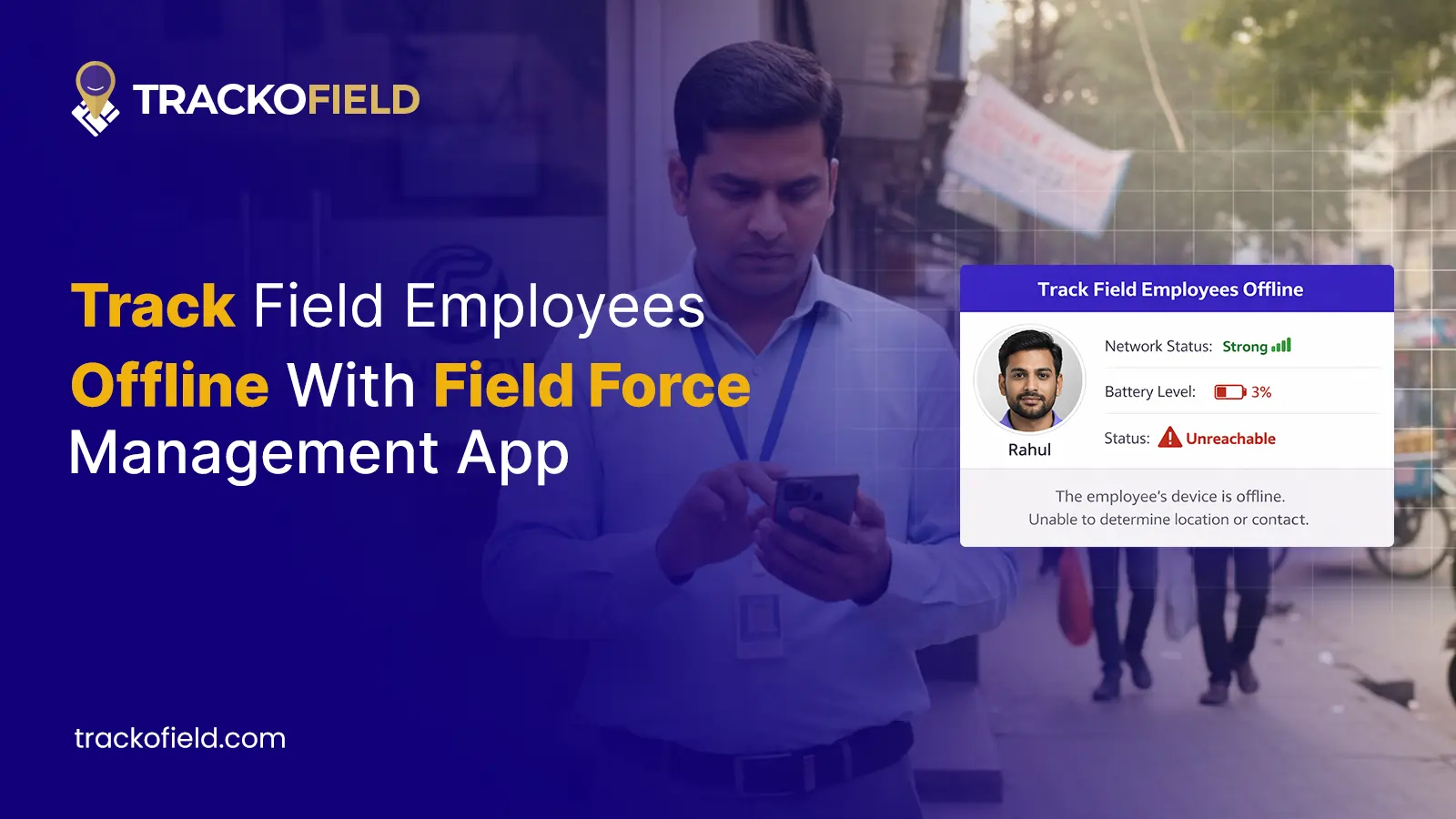
How to Track Field Employees Offline With Field Force Management Software
Mudit Chhikara February 11, 2026Use field force management software to track field employees offline and ensure managers never lose visibility of on-ground operations.
-
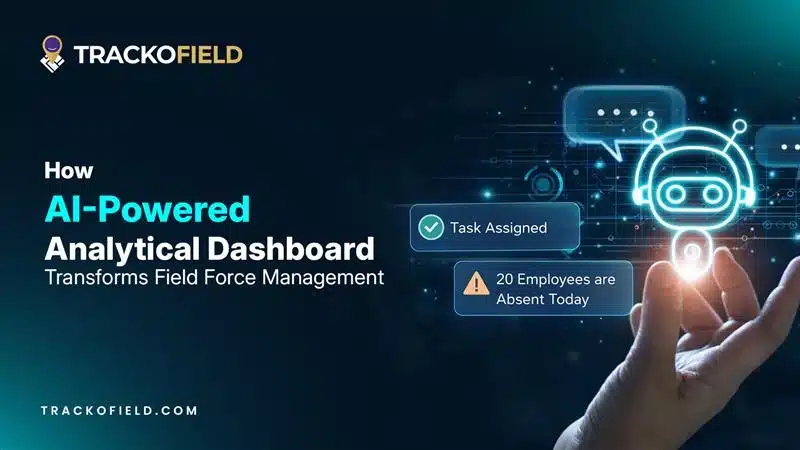
How AI-Powered Field Force Management Simplifies Field Operations With Analytical Dashboard
Mudit Chhikara February 10, 2026How AI-powered field force management enhances field operations using AI manager bot and analytical dashboard.
-

Grameen Credit Score and the Quiet Redesign of Rural Lending
Pulkit Jain February 9, 2026Rural lending doesn’t usually go wrong at approval. It drifts when what’s happening on the ground stops being visible.
-
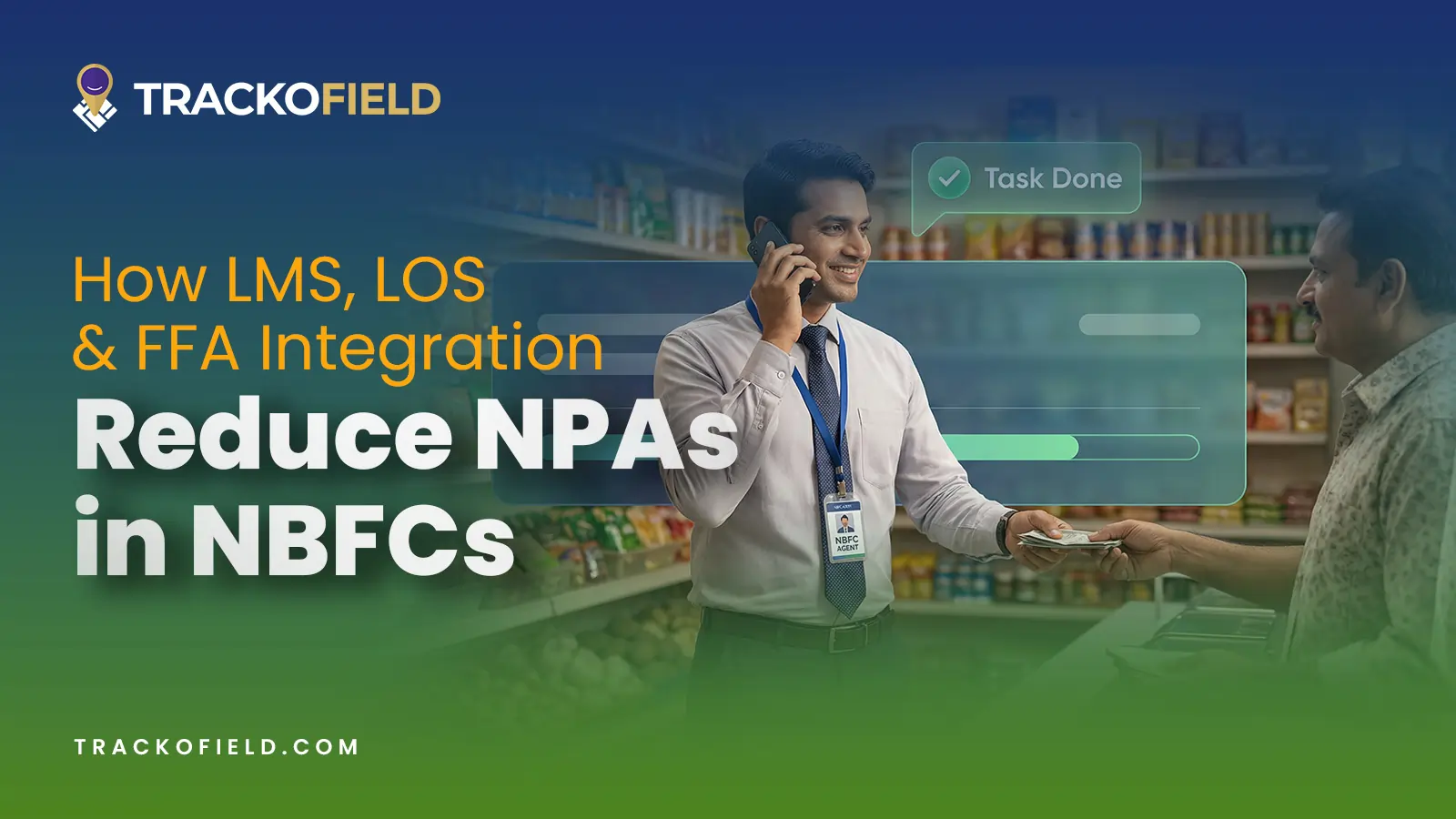
How NBFCs Can Reduce NPAs Using LMS + LOS + FFA Integration
Mudit Chhikara January 30, 2026Here’s how NBFCs can smartly integrate LOS, LMS, and FFA software to reduce NPAs and ensure seamless field operations.

Subscribe for weekly strategies to boost field team productivity.
Your inbox awaits a welcome email. Stay tuned for the latest blog updates & expert insights.
"While you're here, dive into some more reads or grab quick bites from our social platforms!"Stay Updated on tech, telematics and mobility. Don't miss out on the latest in the industry.
We use cookies to enhance and personalize your browsing experience. By continuing to use our website, you agree to our Privacy Policy.



































